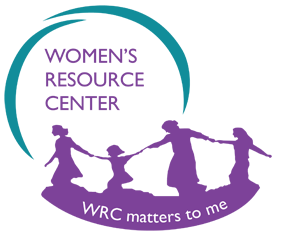
Counseling
Domestic violence can impact every aspect of an individuals life—physically, emotionally, and mentally. At the Women’s Resource Center, we understand these challenges and offer specialized domestic violence counseling designed to address trauma, foster healing, and empower individuals to move forward on their own terms. Our counselors and advocates are trained to provide a safe, confidential, and compassionate environment where you can begin to reclaim your sense of self and wellbeing.
WRC’s Counseling Services
Trauma-Informed Approach
We understand that each client’s experiences are unique, and we focus on how abuse has happened to them rather than asking what is wrong with them, ensuring a nonjudgemental and empathetic environment.
Licensed, Experienced Counselors
Our on-site professionals use trauma-focused cognitive behavioral therapy, bringing compassion and skill to guide clients toward healing.
Client-Led Sessions
Counseling moves at the client’s own pace, respecting personal boundaries and readiness, while working together to explore past traumas and develope healthier coping strategies.
Community and Referrals
Alongside weekly member-led support group, we provide referrals to other capable services providers, ensuring individuals can access the broader network of assistance they need.
Trust-Building and Empowerment
We acknowledge the vulnerability of sharing personal experiences and work to strengthen each person’s sense of resilience, helping them regain confidence in their own power.
Counseling
Domestic violence can affect every aspect of an individual’s life—physically, emotionally, and mentally. At the Women’s Resource Center, we understand these challenges and offer specialized domestic violence counseling designed to address trauma, foster healing, and empower clients to move forward on their own terms. Our counselors and advocates are trained to provide a safe, confidential, and compassionate environment where you can begin to reclaim your sense of self and well-being.
Why We Find Counseling Helpful
1. Processing Trauma: Domestic violence often leaves survivors feeling isolated and misunderstood. Counseling offers a safe space to process the complex emotions—fear, shame, guilt, and anxiety—that can accompany abuse. By exploring these feelings, survivors can begin to reframe their experiences and discover healthy coping strategies.
2. Building Resilience: Studies show that survivors of intimate partner violence have an increased risk of developing depression, anxiety, and post-traumatic stress disorder (PTSD) (Centers for Disease Control and Prevention [CDC], 2019). Counseling can help build resilience by teaching practical tools for managing triggers, reducing stress, and navigating day-to-day life with greater confidence.
3. Reclaiming Choice and Autonomy: Domestic violence often involves control and power dynamics that strip survivors of their agency. Through counseling, individuals can learn to set healthy boundaries, rebuild self-esteem, and make empowered decisions about their future—reflecting our agency’s core value of Choice.
4. Fostering Hope: Hope is a critical part of healing. According to the American Psychological Association, consistent therapeutic support can help survivors envision a life free from violence and cultivate a renewed sense of possibility (American Psychological Association, 2020). Our counselors provide encouragement and resources to help you envision and create that brighter future.
The Mental and Emotional Impact of Domestic Violence
- Increased Anxiety and Depression: Ongoing abuse can lead to constant hypervigilance and feelings of hopelessness, contributing to anxiety or depressive disorders.
- Long-Term Trauma Responses: Chronic exposure to violence can result in PTSD, leading to flashbacks, nightmares, and emotional numbness (CDC, 2019).
- Low Self-Esteem and Self-Worth: Abusers often use tactics like belittling or gaslighting to diminish a survivor’s sense of self, making it challenging to trust one’s own judgment.
- Isolation and Shame: Fear of judgment or further harm may keep survivors from seeking help, reinforcing feelings of loneliness and shame (National Domestic Violence Hotline, 2021).
How We Can Help
- Individual Counseling: Our licensed professionals offer one-on-one sessions, tailored to each person’s experiences and needs.
- Support Groups: Connect with others who have shared similar experiences. Group counseling fosters community, validation, and mutual support.
- Safety Planning: Whether you are currently in an abusive environment or have recently left, we’ll work with you to develop a plan that prioritizes your physical and emotional safety.
- Referrals & Advocacy: We collaborate with local partners to connect you with legal aid, housing support, medical care, and more.
Take the Next Step
If you or someone you know is experiencing domestic violence, you are not alone. Counseling can be a powerful step toward healing and regaining control. At the Women’s Resource Center, we believe in Safety, Dignity, Choice, and Hope—and we’re here to help.
To learn more or schedule an appointment, call our Community Services Office at (405) 310-3131.
References
- American Psychological Association. (2020). Intimate Partner Violence.
- Centers for Disease Control and Prevention [CDC]. (2019). National Intimate Partner and Sexual Violence Survey(NISVS).
- National Domestic Violence Hotline. (2021). Understanding Domestic Violence.

